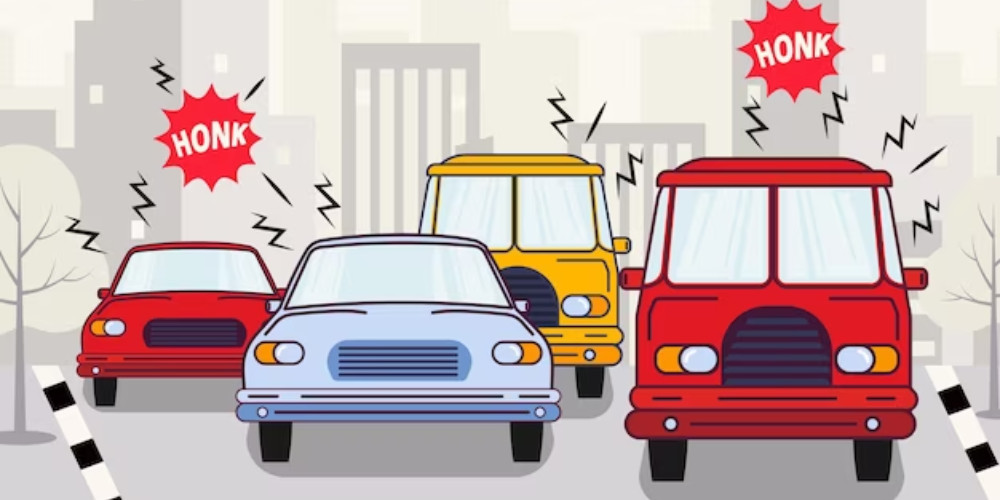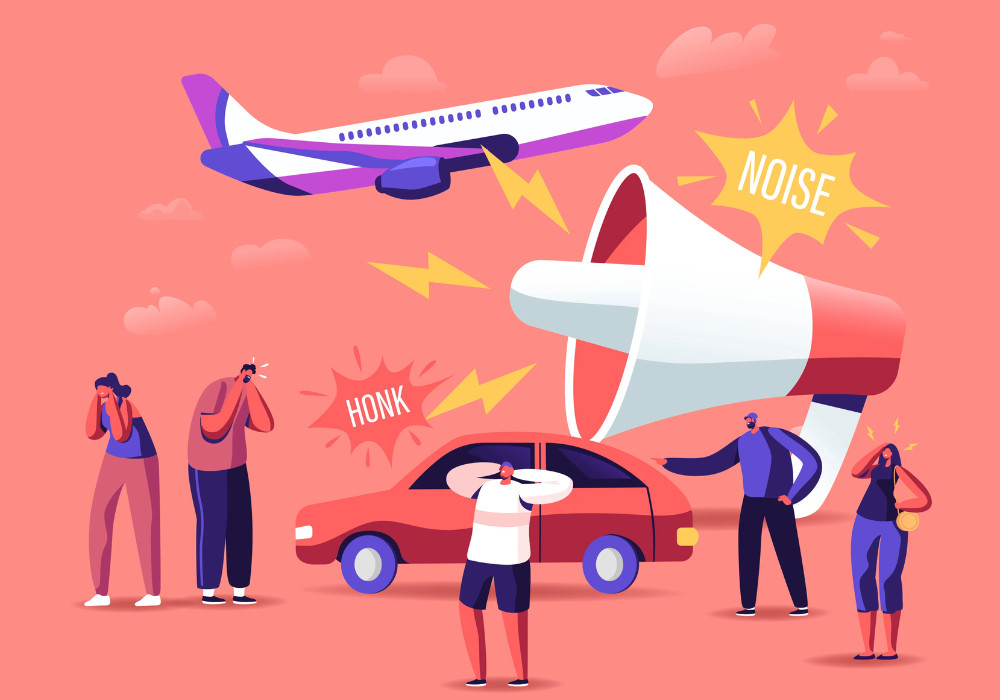Noise pollution is the presence of excessive or unwanted sound that disrupts the environment and negatively impacts human health and well-being. It arises from various sources, including transportation, industrial activities, construction, and recreational activities. Prolonged exposure to high noise levels can lead to physical and psychological issues such as stress, hearing loss, sleep disturbances, impaired cognitive function, and reduced quality of life.
Noise pollution also affects wildlife, causing disruption in their habitats and communication patterns. Effective measures like soundproofing, noise barriers, and public awareness campaigns are essential to mitigate noise pollution and create healthier and more peaceful living environments for individuals and ecosystems alike.
“Silence is Golden, Let’s Preserve It: Say No to Noise Pollution!”
Noise pollution has become an increasingly prevalent issue in our modern society, affecting our physical and mental well-being. The constant exposure to high noise levels not only disrupts our peace but also poses several health risks. However, we all have the power to make a difference and contribute towards reducing noise pollution. In this article, we will explore some practical ways in which we can actively participate in creating a quieter and more serene environment.

Different ways we contribute to reducing noise pollution
Mindful Use of Vehicles:
One of the significant sources of noise pollution is vehicular traffic. By adopting responsible driving habits, we can play a crucial role in mitigating noise levels. Avoiding unnecessary honking, maintaining vehicle engines and exhaust systems, and observing speed limits are some ways to reduce noise pollution caused by vehicles. Carpooling, using public transportation, or opting for eco-friendly modes of transport like cycling or walking can also make a positive impact.
Promote Noise-Reducing Technologies:
Advancements in technology have given rise to various noise-reducing solutions. Encouraging the use of quieter appliances, such as low-decibel air conditioners, refrigerators, and electric-powered tools, can significantly contribute to reducing noise pollution in our homes and communities. Additionally, advocating for the implementation of noise-reducing infrastructure, like sound barriers along highways or noise-cancelling technologies in public spaces, can make a substantial difference.
Create Awareness:
Raising awareness about the harmful effects of noise pollution is crucial to initiate change. Through community outreach programs, educational campaigns, and social media initiatives, we can educate others about the importance of reducing noise pollution. Encouraging schools, workplaces, and residential complexes to conduct workshops or seminars on noise pollution can further amplify awareness and motivate individuals to take action.
Respectful Construction Practices:
Construction activities often generate high levels of noise, especially in densely populated areas. Construction companies can adopt noise mitigation measures like using quieter machinery, implementing construction schedules that minimize noise during sensitive hours, and employing noise barriers. As responsible citizens, we can also support construction companies that prioritize noise reduction and make conscious decisions when choosing construction materials for our own homes.

Noise-Free Zones:
Designating specific areas as noise-free zones can provide respite for individuals seeking peace and tranquility. Parks, libraries, hospitals, and residential areas can be identified and promoted as quiet spaces where noise is strictly regulated. By respecting and preserving these noise-free zones, we contribute to creating an environment conducive to relaxation, concentration, and overall well-being.
Personal Habits:
Examining our own habits and making conscious choices can go a long way in reducing noise pollution. Simple practices such as lowering the volume of televisions, music systems, and personal electronic devices, avoiding unnecessary loud conversations in public spaces, and refraining from using loud equipment during late hours can make a significant impact on noise levels in our immediate surroundings.
Reducing noise pollution requires collective effort and individual commitment. By incorporating these practices into our daily lives and advocating for noise reduction in our communities, we can contribute towards creating a quieter and more harmonious environment for ourselves and future generations. Remember, each small step counts, and together, we can make a noticeable difference in combating noise pollution. Let’s strive for a quieter world!











